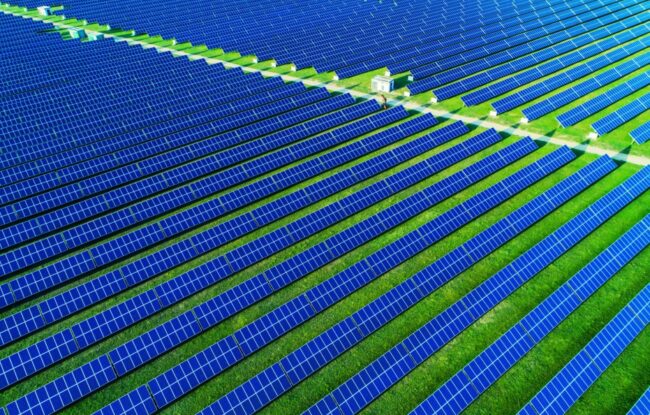Scale Microgrids, a commercial-scale distributed energy developer, announced closing its $225 million debt facility, which will help the company build and operate future projects.
The non-resource project financing debt arrangement is backed solely by assets and contracts and does not include a guarantee from Scale Microgrids or its private equity owner Warburg Pincus.
Warburg Pincus initially seeded Scale Microgrids with a $300 million line of equity commitment in late 2019. The startup has since delivered multiple distributed energy resources projects across industries in the U.S.
The new debt facility will be used to construct and operate a portfolio of future microgrids and other distributed energy projects across the U.S.
“This deal serves as proof that the renewable energy landscape is changing. Microgrids, by their nature, incorporate a number of different technologies and capital providers’ willingness to step up and support,” said Ryan Goodman, co-founder and Chief Executive Officer at Scale Microgrids.
The Scale Microgrids’ current portfolio comprises microgrids, combined heat and power (CHP) systems, community solar, rooftop solar, battery energy storage systems, and microgrid electric vehicle infrastructure projects. The projects are in California, Oregon, the District of Columbia, Pennsylvania, Delaware, Colorado, North Carolina, New Jersey and New York.
“Scale has increased its access to the debt capital markets, which is a cornerstone of our strategy to deliver microgrids and distributed energy projects at favorable rates,” said Julian Torres, chief financial officer at Scale Microgrids.
“Microgrids are an essential part of the next wave of the energy transition movement, and Scale is providing innovative leadership with their long-dated microgrid service agreements with a customer first approach,” said James Bowen, chief executive officer at Energetic Insurance.
KeyBanc Capital Markets acted as joint lead arranger and structuring administrative agent for the non-recourse debt facility. City National Bank also contributed as a joint lead arranger, and Energetic Insurance provided a credit insurance policy enabling access to the bank lending market. Black & Veatch was an independent engineer to the lenders; Wood Mackenzie delivered market forecasts; Allen & Overy provided legal counsel; and Foley Lardner served as lender counsel.
Last Year, Arcadia, a climate software and data startup focused on decarbonizing the electric grid, raised $125 million in new funding to support the development of the company’s Arc platform, a technology platform aimed to help decarbonize the grid and expand its community-solar business.
According to Mercom’s Annual And Q4 2022 Funding and M&A Report for Storage, Grid & Efficiency. Total corporate funding, including debt and public market financing, came to $4.7 billion in 58 deals in 2022, compared to $2 billion in 38 deals in 2021.




